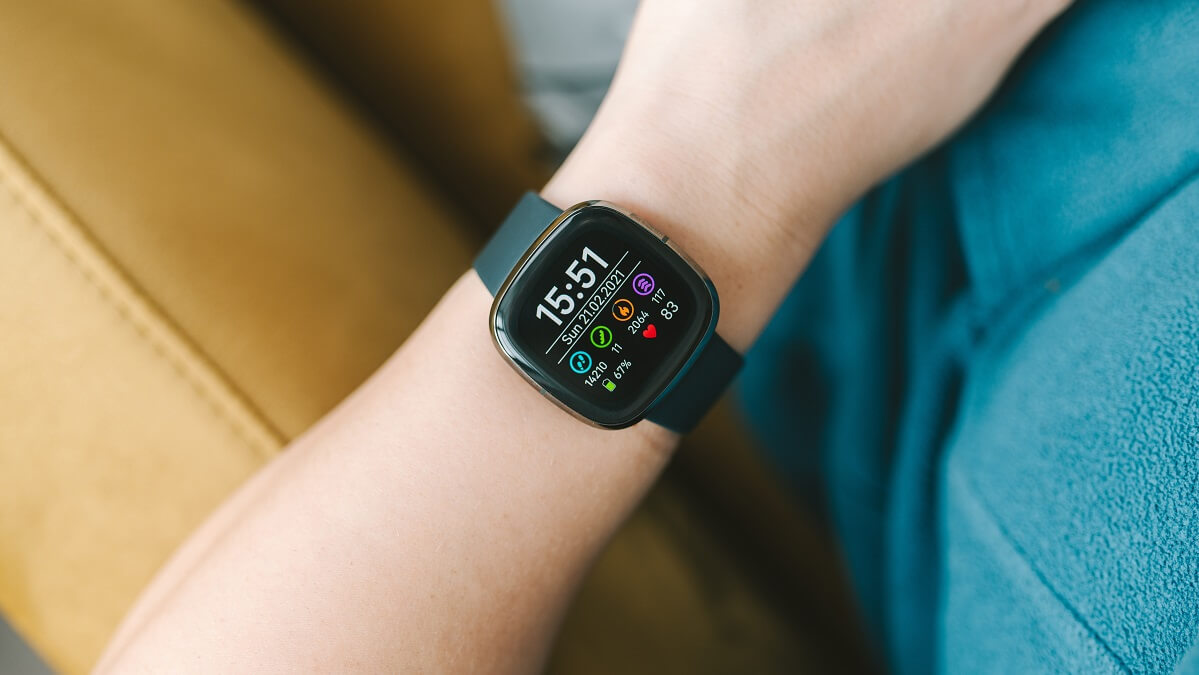Wearable devices – they’re a bit of fun, but can they actually help save your life? The answer increasingly seems to be ‘yes’.
Fitbits, Apple watches and fitness devices of other brands are more popular than ever, and many of the newer models can tell you a lot more about your fitness and health.
Some people lap up the technology, keen to check their heart rate, how far they’ve walked or how well they’ve slept. Others don’t understand what all the fuss is about. There are some who turn their back on such devices – perhaps fearing they’re not as healthy as they should be.
To each their own, of course, but as more people adopt the technology, stories are emerging of wearable devices helping to save lives.
Australian author Maggie Dent can thank her Fitbit for avoiding what could have been a life-threatening health episode, although she initially ignored the advice it was giving her.
Ms Dent had only recently bought her Fitbit, primarily to monitor her heart rate. Both her parents had died of heart attacks – her father at age 73 and her mother at 85.
The purchase turned out to be very fortuitous, although Ms Dent ironically ignored the Fitbit warning she was receiving.
She told The Age that when she noticed her heart rate had gone from a normal resting pulse of around 64 beats per minute to 145, she assumed there was something amiss, but not with her heart. She concluded the Fitbit was malfunctioning.
Ms Dent made the mistake that many do in such a situation, assuming there was nothing wrong with her because she was completely free of symptoms. “There were no symptoms, no sensations, no chest pain, no headache, nothing,” she said later.
In a further ironic twist, Ms Dent, whose expertise is in parenting, only made the decision to present to an emergency department after being convinced to do so by son James, who is an emergency room doctor.
The Fitbit readings proved to be spot on and she was diagnosed with an atrial flutter.
Treating atrial flutters is fairly simple, as long as it’s done within 48 hours of the onset of the irregularity. Beyond that period, the risk of atrial fibrillation increases, and the result can be a fatal stroke.
In Ms Dent’s case, the data recorded by her Fitbit pinpointed the exact time her heart rate spiked, and she was able to receive treatment within 12 hours.
All’s well that ends well, but Ms Dent’s story highlights the fact that as useful as wearable devices can be as health-monitoring tools, they only fulfill that function if wearers actually pay attention to the numbers.
YourLifeChoices wrote last April about the wide range of health information that smart devices can provide, but these wearables have evolved further still. The recently released Apple Watch Series 8 monitors skin temperature, which allows users to get more accurate sleep data and even track menstrual cycles.
Not all wearable devices include such technology, but they do all monitor your vital signs, so if you are looking to join the fitness device community, take some time to choose the one that suits your needs and budget.
That device may even save your life – as long as you pay attention to the information it provides.
Do you wear a smart device? Do you keep an eye on your heart rate and other health indicators? Why not share your thoughts in the comments section below?


Wear both a Fitbit and Apple watch. The latter mainly in case I am not near my phone when I receive a call, but it does have some nice health features as well. a major one being that it phones my emergency contacts and emergency services if I have a fall and don’t indicate I’m okay. Living alone that could be useful.
A major disadvantage of the Apple watch is that it needs to be recharged daily, so I don’t wear it to bed, whereas the Fitbit battery lasts for close to a week, so I do wear that to bed.